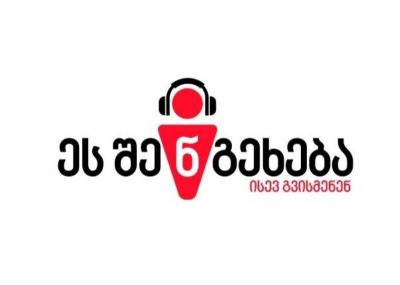This Affects You – They Are Still Listening: Beselia-Popkhadze-Sesiashvili's draft is a step backwards for protection of civil liberties
December 3, 2014

On 1 August 2014, the Parliament of Georgia, based on legislative proposals largely prepared by the civil society, adopted legislation regulating secret surveillance. This new legislation and regulation of secret investigative actions was assessed by international experts to be a progressive step. However, the new legislative initiative sponsored by parliamentary majority MPs Eka Beselia, Irakli Sesiashvili and Gedevan Popkhadze is an attempt to undermine the high human rights standards set by the 1 August 2014 laws.
The Beselia-Sesiashvili-Popkhadze proposal is a step backwards and an attempt to deceive the public.
1. Direct access to telecommunication data remains with the Ministry of Interior. Removing the direct connection and control of the Ministry of Interior was the main goal of the legislative reform, the need for which was stressed in all expert opinions.
2. The Personal Data Protection Inspector becomes an authority carrying out surveillance/tapping, whereas its duty is to monitor the entire process and eliminate unlawful actions. Such a model is not found in any other country. The proposed system rules out the possibility of external control. By including what was envisaged to be a personal external control mechanism (the Inspector) in the surveillance system, its role as an external control and oversight mechanism is undermined.
3. The draft is silent on the effect of the offered two ‘keys’ in cases of urgent necessity, meaning that the Ministry of Interior could again carry out surveillance and tapping without involving the Inspector.
4. The two ‘keys’ are put into effect only during secret tapping and recording of a telephone conversation, while the metadata (time, place, duration of a call) as well as Internet traffic (including communication content) are gathered by the Ministry of Interior without any control or the two keys. Apparently, law-enforcement authorities are using this opportunity to include provisions acceptable to them in the law adopted in August 2014. The below paragraphs describe amendments that weaken the old version.
5. The proposed draft does not allow for an investigation authority to destroy personal data which is unrelated or irrelevant to an investigation. The authority may only delete compromising material. The purpose behind retaining personal data which is unrelated to a crime under investigation by an investigation authority is unclear. All of this undermines the human rights protections introduced through the law adopted in August.
6. The proposed draft no longer applies the same standards to regulate secret investigative actions as those adopted on August 1st in relation to infiltration and collection of data from a computer system or a computer data storing device. An investigation authority is given the right to collect information from a computer system irrespective of circle of persons, category of crimes and without justification of an urgent public necessity.
Pursuant to the proposed draft, an authority carrying out secret investigative actions, the Ministry of Interior’s Operative-Technical Department, can record communication unrelated to investigation, following which an investigation unit will decide at its own discretion to keep these data for future purposes or not. Under the August 1st version in effect, an authority carrying out secret investigative action could not have recorded communication unrelated to investigation (i.e. of essentially private and intimate nature).
The recording authority, the Ministry of Interior’s Operative-Technical Department, is freed from an obligation to duly protect materials obtained from secret investigative actions, whereas under the 1 August 2014 law a recording authority was responsible for duly maintaining and protecting the recordings.
Under the proposed draft, the government is no longer required to publish statistical data on secret investigative actions proactively because all information related to secret investigative actions becomes a state secret (information on the plans, organizing, logistics, forms, methods, and results of secret investigative actions, concrete measures, as well as funding of specific programs is to be classified). In contrast, the 1 August 2014 law introduced an obligation to annually publish in the register statistical information on the results of secret investigative actions.
News
December 13, 2023
Ethnic minorities outside the peace dialogue
November 6, 2023
‘Peace’ agenda of political parties
Popular
Articles
February 13, 2024



